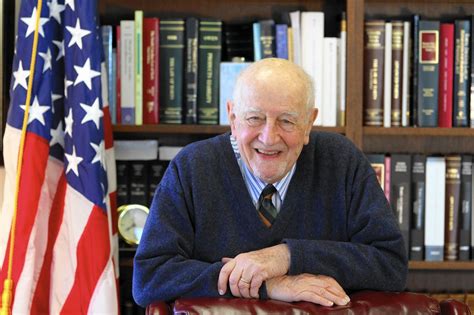A Quote by Guido Calabresi
There is something particularly appealing about teaching a subject that seems to deal with the lowest kind of relationships-accidents, ambulance chasing-because you can show students that these raise the most fundamental questions about the structure of society.
Related Quotes
I'm ready for conventions. You know what's interesting, the sort of questions that Lost raises are of a different sort from this movie. In other words, Lost is about figuring out the world of the show, whereas this one seems to raise questions about the world that we know. But I'm happy to entertain both.
There's something inherently more appealing about the idea that you could reveal and tell stories about characters over the course of a TV season - 13 or 26 episodes, whatever it might be - than in the course of one two-hour movie. You can do so many more novelistic kinds of things on a TV show - with time, with gradual development of relationships, and so on - than you could possibly do in a movie. And that is very appealing.
Certainly it's great to be able to talk to your friends about something. They might mention a film, and you can find all about it, and you don't have to wait months until you can find a book that might cover the subject and keep it in your head. You can have that kind of immediacy. But there's also something about it, where all the knowledge seems kind of fleeting. All the stuff I learn about in that way, I can be interested in for a day and then it's gone.
Are our ways of teaching students to ask some questions always correlative with our ways of teaching them not to ask - indeed, to be unconscious of - others? Does the educational system exist in order to promulgate knowledge, or is its main function rather to universalize a society’s tacit agreement about what it has decided it does not and cannot know?
Teaching is a huge part of what I do. I love to think about what I do out loud, and the best way to do this is to teach. I usually learn a lot from the students in my workshops, because we work to build the classes around a collaborative environment where everyone is working towards the same goal of learning how to observe and see the subject well, because everyone brings different approaches and experiences with them, the other students and myself learn new methods that we can add into what we do.
Novels shouldn’t aspire to answer questions, and I wouldn’t presume to offer advice about love or marriage in any case. What’s fascinating to me about marriage as a subject for fiction—a subject that fiction has taken on with gusto since the 19th century—is how unknowable other people’s relationships are. Even the marriages of your parents, your siblings, your closest friends always remain something of a mystery. Only in fiction can you pretend to know people completely.
Teaching, like any truly human activity, emerges from one's inwardness, for better or worse. As I teach I project the condition of my soul onto my students, my subject, and our way of being together. The entanglements I experience in the classroom are often no more or less than the convolutions of my inner life. Viewed from this angle, teaching holds a mirror to the soul. If I am willing to look in that mirror and not run from what I see, I have a chance to gain self-knowledge-and knowing myself is as crucial to good teaching as knowing my students and my subject.

































